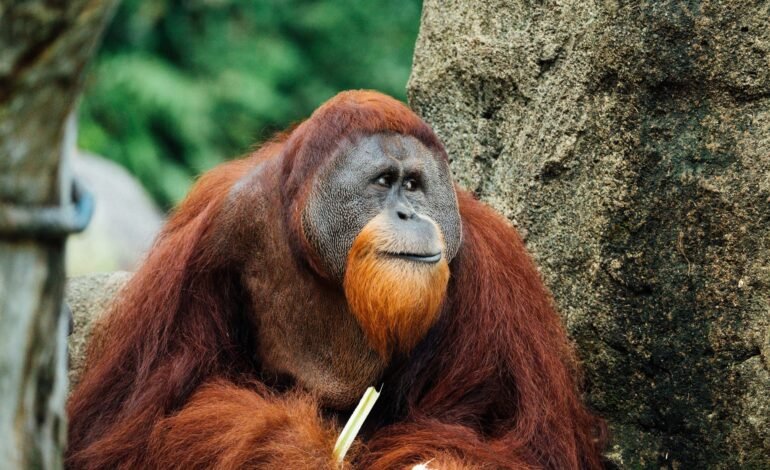Orangutans balance diet to avoid obesity, study finds

Among our closest evolutionary relatives, orangutans, have developed unique strategies to survive in the unpredictable rainforests of Borneo. A study has found that the apes balance protein intake and adjust their daily activity to match with food availability. This allows them to avoid overeating and obesity while also helping them to avoid metabolic diseases.
Unlike humans who frequently eat processed and unhealthy food without adjusting energy usage, orangutans switch between fruits, leaves, and even their internal body fat stores depending on the season. Their ability to do this can offer insight into their survival as well as healthier habits among people.
The great apes native to Indonesia and Malaysia are experts at adapting to food supply in the wild, an international team of researchers led by a Rutgers University-New Brunswick scientist who conducted the study said. The critically endangered primates can teach us a lot about balanced diet and exercise, the researchers say.
The findings came after observing orangutans in Borneo for 15 years. They were published in the journal Science Advances.
“These findings show how wild Bornean orangutans adapt to changes in their environment by adjusting their nutrient intake, behaviour and energy use,” said Erin Vogel, the Henry Rutgers Term Chair Professor in the Department of Anthropology in the School of Arts and Sciences, who led the study. “The work highlights the importance of understanding natural dietary patterns and their impact on health, both for orangutans and humans.”
The primates are among our closest living relatives, Vogel said. This means that we have similar physiological and metabolic processes, dietary needs, and behavioural adaptations. Studying orangutans can help us learn more about the evolutionary adaptations that could be relevant for us, she added.
Stay tuned to EyeOnLondon for the latest news and expert opinions.
Follow us on:
Subscribe to our YouTube channel for the latest videos and updates!
We value your thoughts! Share your feedback and help us make EyeOnLondon even better!









